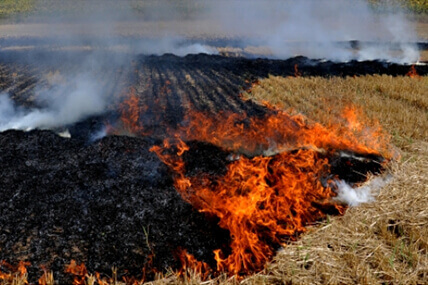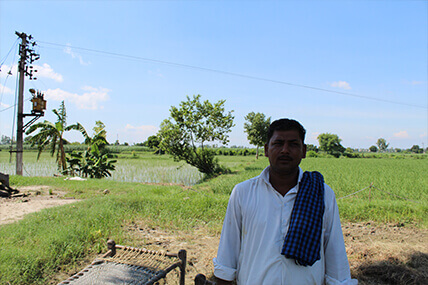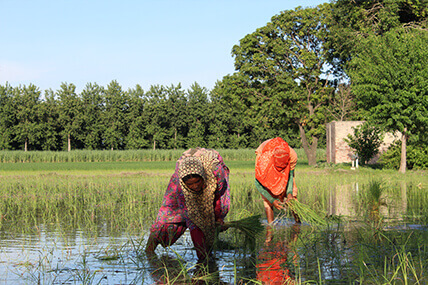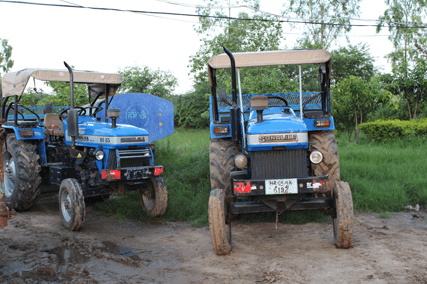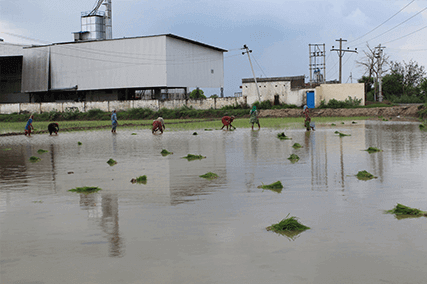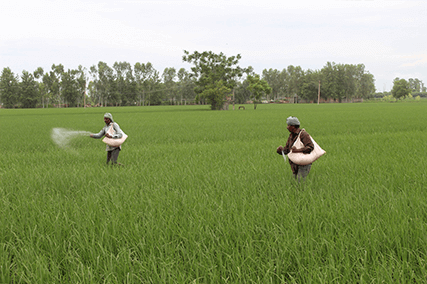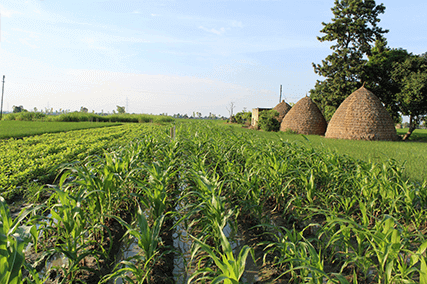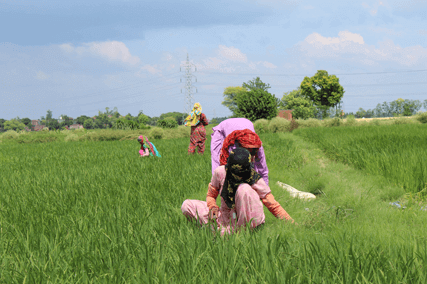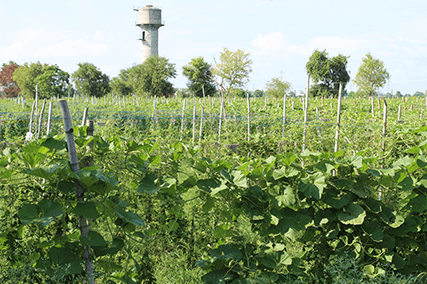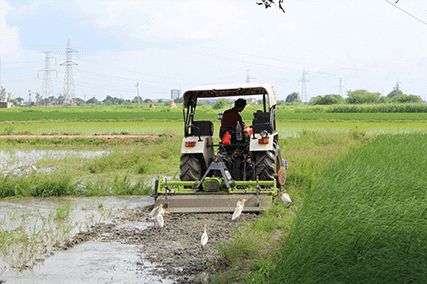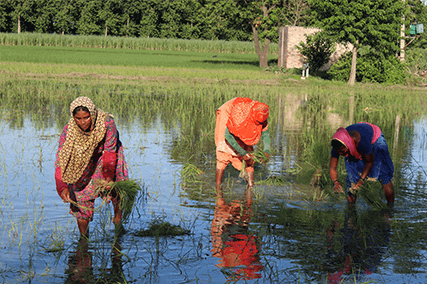Our Impact





What We Need To Address
While crop residue burning is one of the major causes for air pollution hike every year, the reason behind crop residue burning is the actual root concern that needs to be addressed.The Central Pollution Control Board data showed the overall air quality index (AQI) of Delhi at 412, which falls in the 'severe category', while upto 50, AQI level is good.
Deep Rooted Practice
Burning the remains of crops after harvest has been Indian agriculture’s oldest practice which is considered righteous by the farmers. They consider it to be a normal practice and do not know the adverse effects that occur from it. As a result, crop residue burning is still prevalent in 60-80% of Northwest Indian farms.
Lack Of Knowledge
The rural sector of North India is one of the major producers of rice and wheat for the country. Even though agriculture education is strongly recommended in these areas, it is not yet implemented with equal intensity. The farmers have been working on their age-old methods, and are unaware of the innovation & technology advancement which can benefit them as well as the environment in the long run.
Crop Cycle Shifting
After the October month’s harvest, farmers are usually left with only a handful of days to remove crop residue from the land and prepare it for the next crop. With crop residue burning as the fastest option to clear the farmlands due to lack of equipment & infrastructure, farmers choose to do so without thinking further about the outcomes.
How We Are Addressing It
To efficiently embed climate-smart & sustainable agricultural practices in the minds of farmers, we follow a series of steps by creating awareness, providing evidence, implementing action plans, and then supporting them in execution. We began by adopting 25 villages in Karnal, Haryana and working with the farmers for crop residue management.
Raising Awareness
Sonalika CSR has been raising awareness among farmers and the civil society about ill effects of crop residue burning on humans, soil, plants and animals. The awareness was also to help farmers understand the benefits of crop residue management not only for the environment, but also to help them increase their revenue, simultaneously reducing their labor and time spent.
Demonstrating Evidence
As awareness of new agriculture methods needs backing to get the support of the farmers, a proper demonstration of the process as well as data driven facts were shared with the farmers to help them understand the potential of crop residue management. The evidence also aimed at gaining the interest of younger generation towards innovative agricultural practices as they hold the future of our nation’s agriculture on their shoulders.
On-Ground Analysis
It was found that 12 out of 25 villages did not have proper implements for crop residue management. 10 out of 25 villages were too far from market input and output areas, due to which the transportation cost was affecting the revenue. 9 villages were over 20 kms away from Krishi Vigyan Kendra which meant connectivity for agriculture knowledge sharing was considerably less.
Execution
After the on-ground analysis, to implement crop residue management effectively, it was identified that these villages needed awareness, education and immediate on-ground support. Proper on ground support equipment like Happy Seeder, Spatial Zero Till Seed Cum Fertilizer Drill and Super Straw Management System were provided to farmers for managing the residue of crop with conservational farming. We worked on capacity building building as well. Plantation drive and rallies were also organised to create awareness.
Extending Impact
In due time, the 25 villages in Karnal, Haryana that we adopted have implemented almost zero stubble burning in their farms. But, the real impact on our environment will occur only if this number grows in hundreds and thousands. For that, we need your support. Your support can help us make the cause larger.
Crop Residue Management
When rice gets harvested then its residue remains standing there. Generally, farmers tend to burn that residue. With the help of Super Straw Management System, Happy Seeder and Spatial Zero Till Seed Cum Fertilizer Drill, it can be taken care of inside the field while sustaining the environment. Sonalika CSR, along with CIMMYT, has successfully implemented this technique in 25 villages in Karnal, Haryana.
At the time of harvesting of rice, Super Straw Management System is being attached to the combine that distributes the residue equally in the field which acts like a fertilizer later and also helps in containing the moisture in field. With Happy Seeder and Spatial Zero Till Seed Cum Fertilizer Drill, sowing can be done on the same day and it will save both farmer’s money and time, while simultaneously giving the crop proper time for yielding.
With this process, we have observed the following outcomes:
- Better yield
- Saves time & money
- No need to burn stubble
- Less irrigation required
- Improvement in soil structure and fertility




